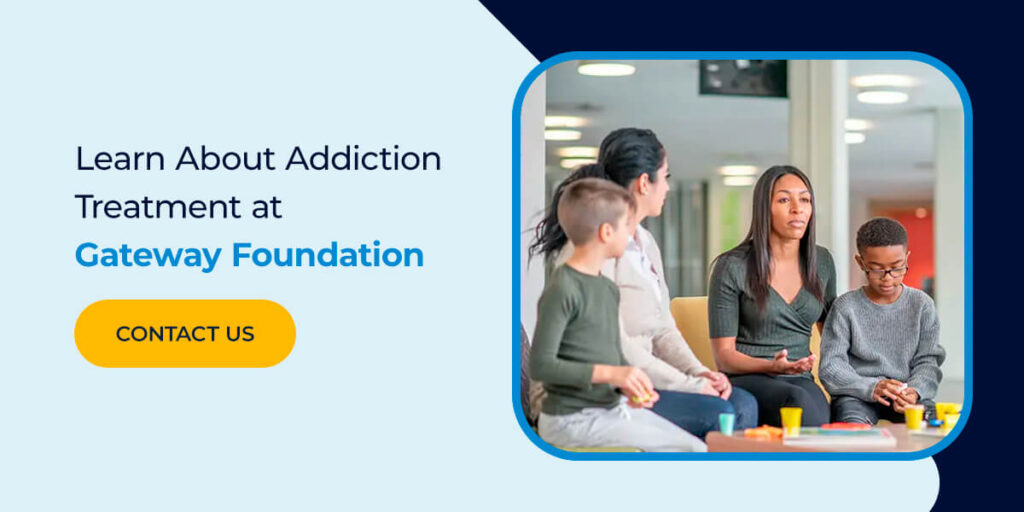- Sep 13
- AddictionDrug Addiction TreatmentRecovery

If you have a loved one who battles addiction, you know firsthand the painful price of your love. You likely feel infinitely helpless as you watch someone you care for battle this stubborn opponent. Even more challenging is knowing how to continue showing them love while putting up necessary boundaries. Here we’ll offer some guidance on navigating those difficult conversations about addiction and how to detach with love to take a step back and let your loved one take control of their own healing journey.
How to Talk to Your Loved One About Their Addiction
Even if you desperately want to connect with your loved one, knowing which words to use — and which to avoid — can feel like stepping through a minefield. Keep these tips in mind, and remember that your communication doesn’t have to be perfect — just honest:
- Ask open questions: Be willing to listen to the answers in a nonjudgmental way, remembering that your goal is to understand and support.
- Recognize that addiction is a chronic disease: This step will help you to avoid attitudes of condemnation and frustration with their struggle to quit.
- Refuse to play the blame game: While their addiction may have begun as a series of choices, they don’t ultimately want to be addicted. Blaming them — or yourself — will not help the conversation.
- Avoid sugarcoating the truth: You can be kind while also being honest as you make them aware of how their actions affect others.
- Match your words and your actions: Be a stabilizing force who is predictable, consistent and clear.
What Is Detachment & How Can It Help?
Detachment is the process of emotionally and often physically distancing yourself from a loved one. It can often be easy to take a backseat to your mental health while trying to support someone you love struggling with substance use disorder. Addiction doesn’t just affect the person living with it. It can impact everyone in that person’s inner circle, including friends, family, and coworkers.
Detaching with love means creating a healthy space for your relationship as you hand back the reins you never really held in the first place and remove yourself from the perceived responsibility for their choices. It means refusing to adapt to the situation or enable them. It’s an awareness that you cannot control someone else’s actions — you can only control how you react to them.
At the same time, this can make it more difficult for you to focus on your mental health. You might deal with frustration, stress, anger, or burnout as you attempt to instill change in your loved one. Detachment is all about letting go. Setting boundaries can be complex, but sometimes tough love is the only way to maintain a relationship with someone with an addiction.
Detaching With Love
The idea of detachment can feel cold. Even the term feels lonely and sad, perhaps like you’re giving up on your loved one in a way. That’s not the case.
Detaching with love means creating a healthy space for your relationship as you hand back the reins you never really held in the first place and remove yourself from the perceived responsibility for their choices. It means refusing to adapt or enable them and setting healthy boundaries around yourself that you refuse to cross. It’s an awareness that you cannot control someone else’s actions — you can only control how you react to them.
Detaching with love can be an incredibly positive thing for both you and your loved one. By taking a step back, you can remove the shame that they may feel from disappointing you. A future recovery will stem from their own desire to be healthy rather than being the result of pressure from you. Detaching will give them the power to accomplish milestones for themselves and feel the resulting satisfaction of a goal met. Most of all, detaching communicates the message that you believe they’re strong enough, capable enough and brave enough to recover for themselves.
Tips For Loving Someone With Addiction

It can be emotionally taxing to love someone with addiction, but there are ways to care for yourself and them without enabling their behavior.
1. Accept the Present
Accepting your present situation and coming face-to-face with reality is crucial when you love someone with an addiction. Denial is an easy coping mechanism, as it can shield you from the pain substance use might be causing in your life. You might tell yourself things will get better, but it’s vital to remember that the situation will not improve simply because you wish for it.
Instead, learn to accept the present and the parts of your life that might be out of control due to loving someone with an addiction. You might feel the need to do favors for people with addiction to maintain a false sense of peace. However, the longer the enabling continues, the worse the situation can become — for you and the person struggling.
2. Set Boundaries
When you love someone with addiction, setting and maintaining boundaries is crucial. Learn assertive techniques and when to say no. Setting boundaries and practicing tough love can help you from enabling your loved one’s behaviors while allowing you to care for yourself.
For instance, spending time away from someone with an addiction can give you the necessary time to reflect on your life, partake in your favorite hobbies and care for your health.
3. Avoid Trying to Control the Situation
Remember that you cannot control or change the person struggling. The only person you have power over is yourself. When you accept this fact, you can grasp the reality of the situation and avoid overextending yourself. Learning the difference between what you can and can’t change can help you avoid stress, burnout, and depression in your relationship.
4. Know the Difference Between Helping and Enabling
Like most people, you probably feel the need to help your loved one with addiction. You might fear that their predicament could worsen if you don’t help. However, “helping” people with addiction by giving them money or letting them stay in your home can actually be a form of enabling. Once you end the enabling and learn how to say no, you can truly begin to help your loved one.
5. Practice Self-Care
When attempting to help someone with addiction or any issue, it’s common to put the other person first. You might deem self-care as selfish. In reality, practicing self-care means respecting yourself and supporting yourself in healthy, holistic ways. If you try to care for someone before you care for yourself, you will likely become depleted and exhausted, which isn’t helpful for anyone. And caring for your physical, mental, emotional, and spiritual needs can often put you in a better position to help others.
So focus on your life and explore what might fulfill you, from new hobbies to career changes, traveling, or meeting new people. The possibilities are endless when you learn to care for your needs.
6. Reach Out for Help
It can be challenging to navigate a relationship with someone struggling with substance use disorder. Addiction is a disease that can wreak havoc on a person’s life — including the people closest to them. Fortunately, mental health professionals can help. Reaching out for support as soon as possible can help prevent the situation from worsening.
Treatment centers often provide family therapy, where you can learn more about addiction and healthy ways to communicate or set boundaries with struggling loved ones. You can also benefit from talk therapy. Having someone to talk with can often go a long way in supporting your mental health.
Learn About Addiction Treatment at Gateway Foundation
Addiction in families and relationships can make individuals feel hopeless or alone. It’s crucial that you know support is on your side. At Gateway Foundation, we offer addiction education and support for families facing addiction. From family counseling to individual therapy, we can help you regain control of your life and start feeling better.
To learn more about our treatment programs, contact us today.



